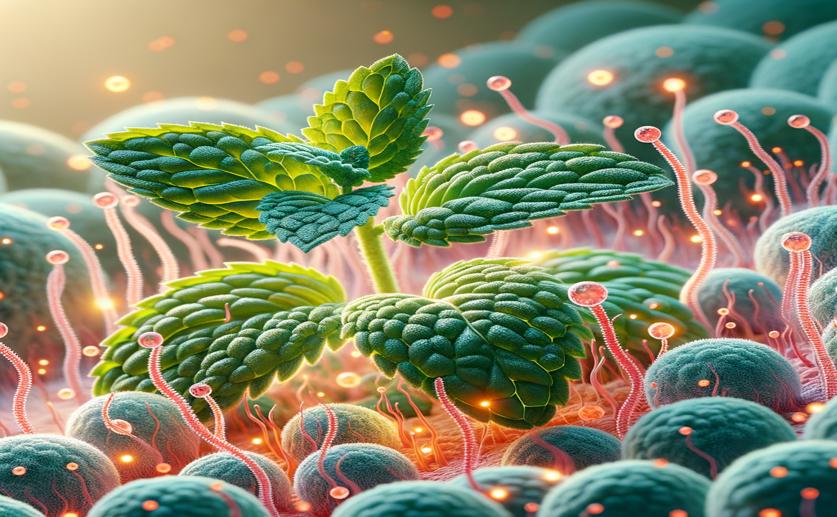
How Tiny Particles Impact Gene Activity and Biochemistry in Peppermint Plants
Greg Howard
12th June, 2024

Image Source: Natural Science News, 2024
Key Findings
- The study by the Sana Institute examined the effects of titanium dioxide nanoparticles (TiO2NPs) on peppermint plants
- Higher concentrations of TiO2NPs significantly altered the expression of genes involved in menthol production
- TiO2NPs induced oxidative stress in peppermint plants, but the plants also showed adaptive responses to this stress
References
Main Study
1) Studying the impact of titanium dioxide nanoparticles on the expression of pivotal genes related to menthol biosynthesis and certain biochemical parameters in peppermint plants (Mentha Piperita L.)
Published 11th June, 2024
https://doi.org/10.1186/s12870-024-05228-9
Related Studies
2) Ethnomedicinal, phytochemical and pharmacological updates on Peppermint (Mentha × piperita L.)-A review.
3) Chemical signaling under abiotic stress environment in plants.
Journal: Plant signaling & behavior, Issue: Vol 3, Issue 8, Aug 2008
4) Characterization of titanium dioxide nanoparticles in confectionary products and estimation of dietary exposure level among the Chinese population.



 14th May, 2024 | Greg Howard
14th May, 2024 | Greg Howard